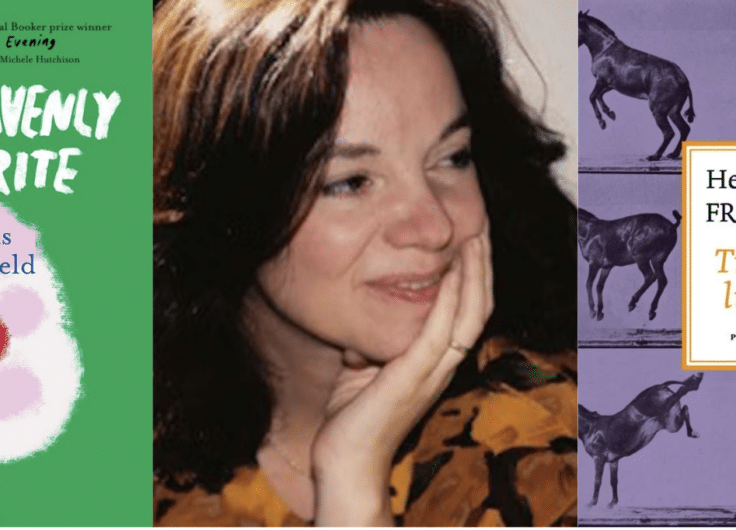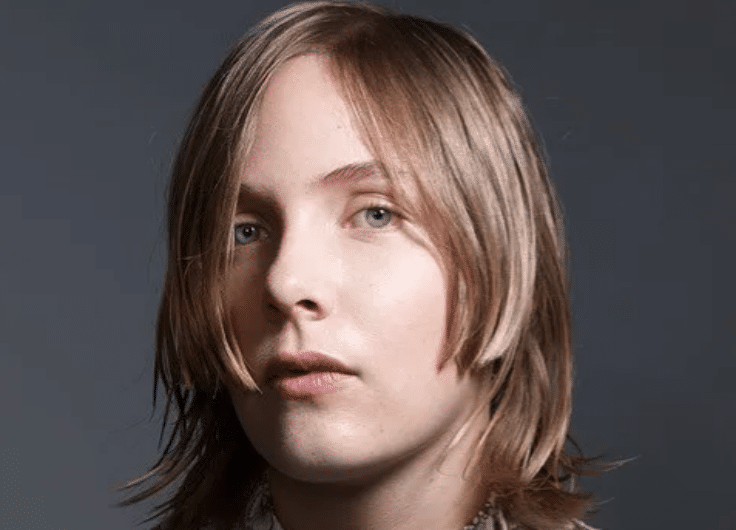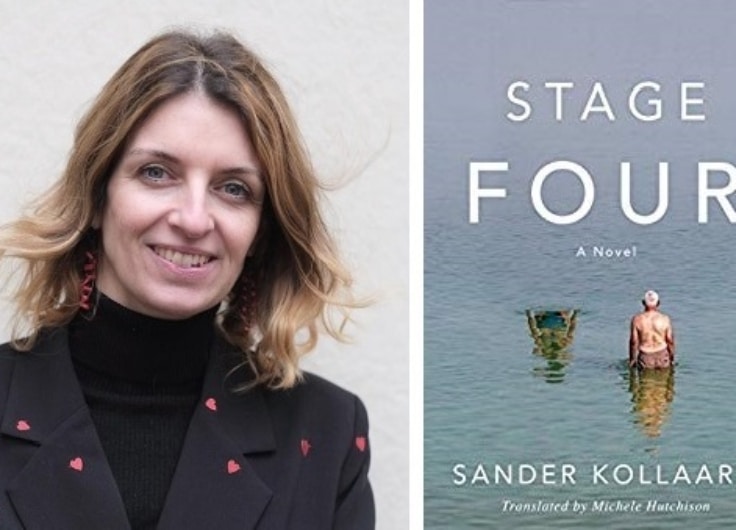Imagination With Jet Black Edges. ‘My Heavenly Favourite’ by Lucas Rijneveld
Every character navigates between conflicting desires in Lucas Rijneveld’s second novel. The Vet wants to heal, but knows he is breaking. The ‘Favourite’ wants to be seen and to disappear, she is a girl and a boy, she plays in the twilight zone between childhood and adolescence. It all makes My Heavenly Favourite even more claustrophobic than The Discomfort of Evening, Rijneveld’s debut novel, which brought him international acclaim.
[…] and then you said that you thought favourite was a beautiful word, magnificent even. And you didn’t respond to my message, you were a useless president, my sweetheart, but I didn’t care. You looked satisfied with the word that I’d chosen for you and you breathed in deeply and I placed my hand on your lips […]
‘Favourite’ is just one of the many words that the nameless, 49-year-old Vet chooses for the daughter of a livestock farmer – his chosen one, his beautiful putto, his little 14-year-old show animal. Lucas Rijneveld (b. 1991) delves into themes of paedophilia, abuse and forbidden love, darker even than those of his debut novel The Discomfort of Evening (2018). With this book, he became the first author writing in Dutch to win the International Booker Prize.
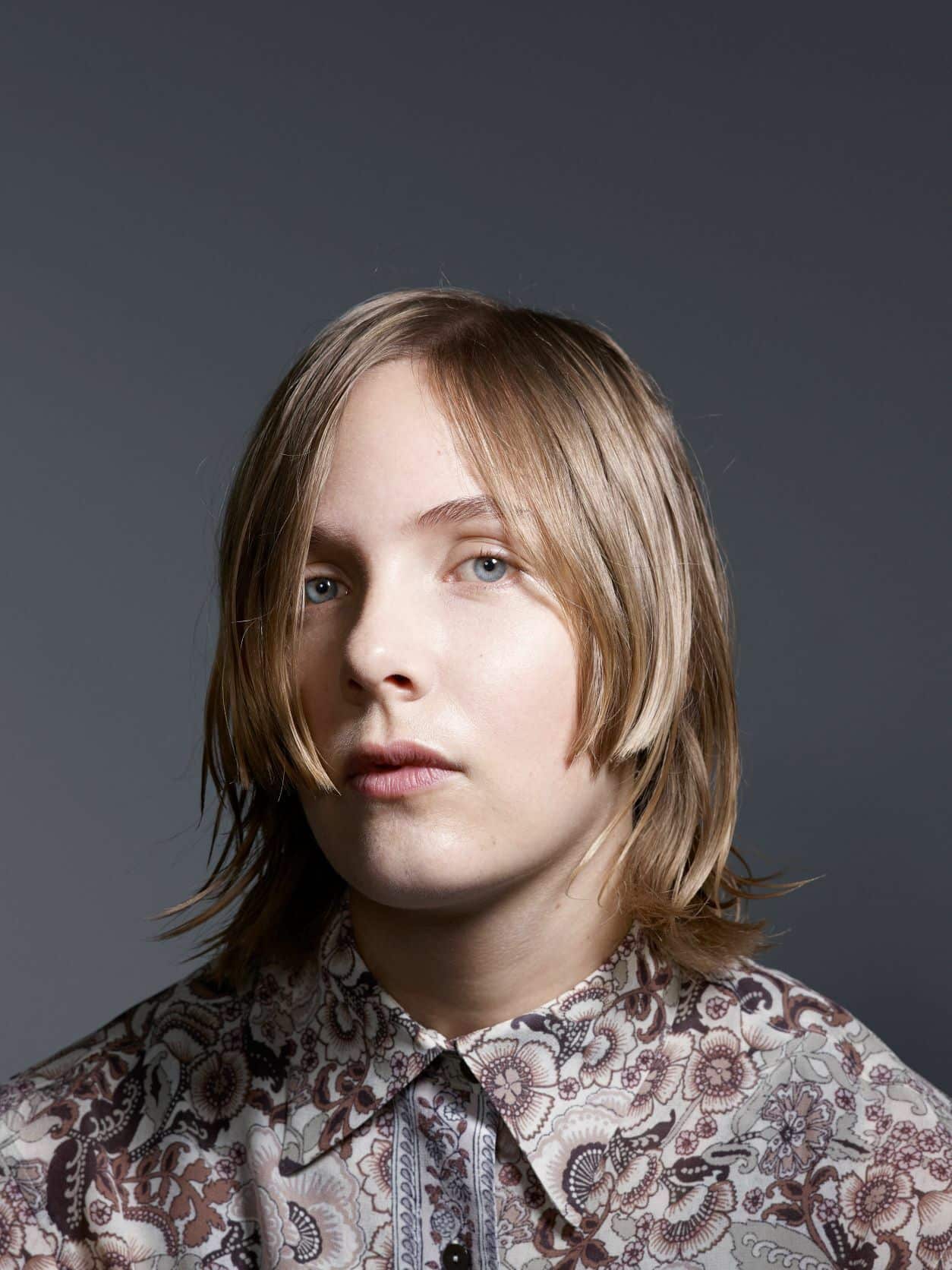 Lucas Rijneveld
Lucas Rijneveld© Jouk Oosterhof
The Favourite feels like a familiar character and is referred to in the second person as you. She seems like a duplicate of the main character in Rijneveld’s first novel – Jas. The Favourite too is traumatised by the loss of her brother, and now subsequently her mother, who deserts the family after his death.
The fascinations and childlike fantasies that bubbled up in The Discomfort of Evening are now magnified. The curiosity around little willies has turned into a longing for one’s own “little anthers”. There are imaginary evening discussions with Hitler and Freud and the urge to escape the cramped farm life in The Village is embodied through a threateningly packed suitcase: the Favourite is always ready to fly away. After all, as she explains to the Vet, she can transform. She can become a bird, a frog or an otter. It was she who flew into the towers on September 11th she claims, she is to blame for all of the deaths.
“Unrest gives wings to the imagination” was the overarching assignment for The Discomfort of Evening, but it suits this book equally well, as the imagination acquires jet-black edges and play quickly moves into damaging territory.
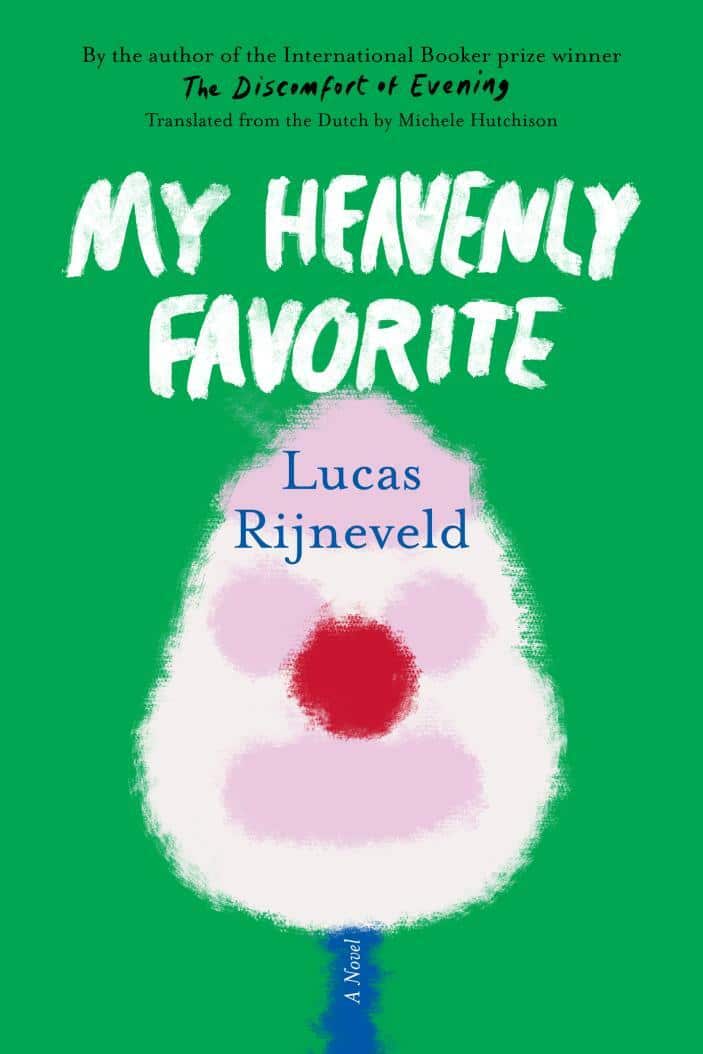 American edition of 'My Heavenly Favorite'
American edition of 'My Heavenly Favorite'The Favourite’s performance partner is the Vet, and he too comes straight out of Rijneveld’s previous novel. In the eyes of the 10-year-old Jas, he is a healer – someone who can remove the stone from her mother’s belly and surgically remove her grief. At the same time, the Vet embodies power. He brings death with him when livestock are preventatively cleared during the foot-and-mouth disease epidemic. He is also the man who bows down to Jas and whispers, “I think your coat looks beautiful on you.”
In My Heavenly Favourite Rijneveld puts forward the same duality from the perspective of the Vet, who is grappling with his part as “shepherd of death”. He is constantly plagued by the image of a farmer who hanged himself after the culling of his animals. The doctor came too late to be of any comfort.
His love is destructive too, even though he wants nothing more than to heal his Favourite, who is scarred by grief for “the lost” and “the forsaken”. He hopes there will be a need for a “relocation of the abomasum, or a removal of tissue overgrowth” in the cattle at De Hulst’s farm – if only to be in the vicinity of his heavenly putto for a little longer.
The Vet wants to protect the object of his desires, but becomes a parasite. “[…] I wanted to glue you and fix you, not break you. But I’ve always been unhandy”, the Vet sounds in a long rumination, which seamlessly leads him to his own trauma. In one and the same sentence the Vet fantasises about his “medal of bravery […] because I would save you”, he drops his mother’s Sunday-best crockery, “make-up pancakes” are served, and a boy kneels in front of his mother who is sat on the edge of the bed with her legs spread.
Nabokov's style is echoed in Rijneveld’s masterful and poetic opening sentences
The need for healing twists itself between the obsessive fantasies about his forbidden love. Everything culminates in nightmares, which are not inferior to Frits van Egters’ delusions in Gerard Reve’s book The Evenings: A Winter’s Tale.
Rijneveld’s dense page layout embodies the Vet’s troubled mind. Just like his poetry, there is hardly any white on the page. All thoughts are strung together in long threads. There are no paragraphs, no space to breathe and no places to rest. A single sentence stretches across multiple pages and only at the end of a chapter is a little refuge offered. The entirety is claustrophobic and the many references to the future reinforce this feeling. “[…] we would sit in the spot where I would much later lay down a mattress, filled with memory foam and poly-foam, when I had become so withered and obsessed with you.”
This obsessive interest is mutual. The Favourite calls the Vet “Kurt”, after her idol Kurt Cobain, the singer of the rock band Nirvana, who killed himself when he was 27. She visits him when he is working in the barn and tells him about her magical ideas and the love affairs of her classmates. She is both childlike and mature and talks as enthusiastically about her favourite sweets as she does about an interpretation of Beckett.
 British edition of 'My Heavenly Favourite'
British edition of 'My Heavenly Favourite'This is illustrated in a scene in which Kurt takes his Favourite to an adaptation of Beckett’s Endgame, and at the end of the performance, she slips into another room where a puppet show is happening. “[…] and I asked you what exactly you like so much about Punch, in comparison to this masterpiece and […] you said: Sometimes it’s the simplicity of something that makes everything work. That’s what Hamm and Clov lacked – the simplicity of everything, the absence of everything complicated.” Are these the words of a child, or do the italicised dialogues without quotation marks suggest that we are instead dealing with the unreliable perspective of a second Humbert Humbert, the male protagonist of Vladimir Nabokov’s novel Lolita?
Nabokov is never far away in any case. His style is echoed in Rijneveld’s masterful and poetic opening sentences (“[…] but my weakness, my lameness! You lay like a calf in breech in the delivery room of my sick desires that whole stubborn summer.”), in the word ‘nymphine’ and the phrase ‘in the fire of my loins’.
Every character navigates between conflicting desires
Just like Humbert Humbert, the Vet speaks to magistrates – not to plead for his innocence, but to show how tortured he is, “[…] dear gentlemen of the court, you can’t find anyone more pained!” Just like Nabokov, Rijneveld hasn’t written a story exclusively about abuse, above all it is a love story. The Vet and his Favourite find each other in their dark fantasy, in music and in literature.
In an interview with de Volkskrant, Rijneveld explains, “I want you to feel sympathy for the Vet. Resistance and disgust can be there, but not on their own.” False pretences and a morbid longing for that little red tongue or for ‘another time’, are contrasted with genuine care for his little lover god.
Every character navigates between conflicting desires. The Vet wants to heal, but knows he is breaking. The Favourite wants to be seen and to disappear, she is a girl and a boy, and she plays in the twilight zone between childhood and adolescence. Once again, the dusk provides discomfort. Rijneveld excels at it more than ever.
Lucas Rijneveld, My Heavenly Favorite, translated from the Dutch by Michele Hutchison, Graywolf Press, 2024, 344 pages
Lucas Rijneveld, My Heavenly Favourite, translated from the Dutch by Michele Hutchison, Faber & Faber, 2024, 320 pages


